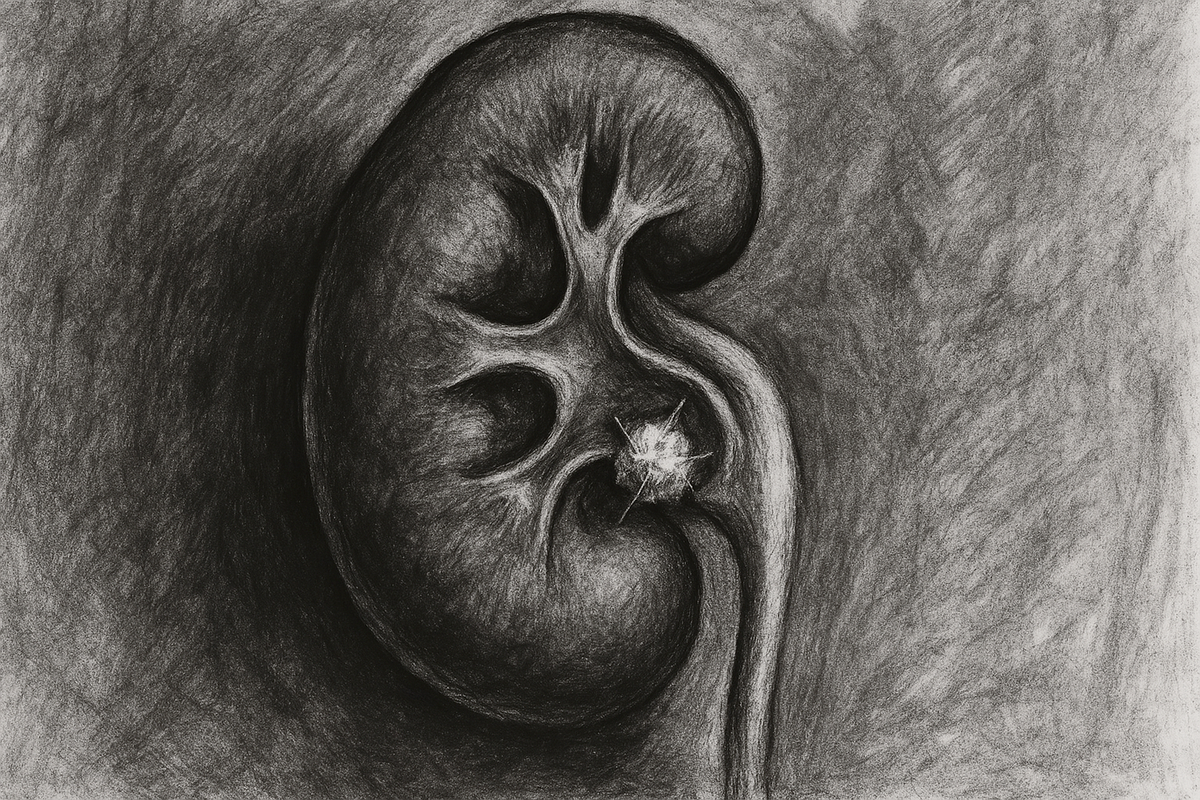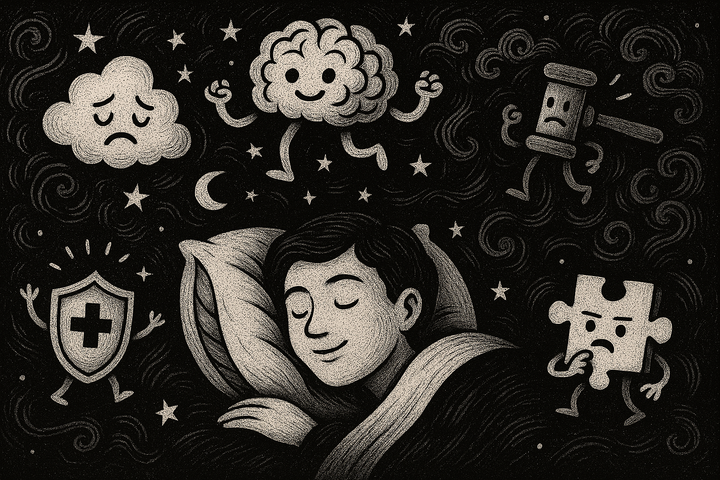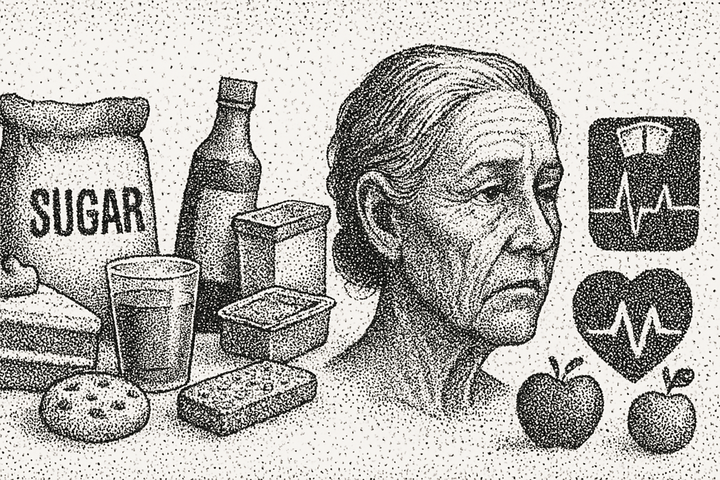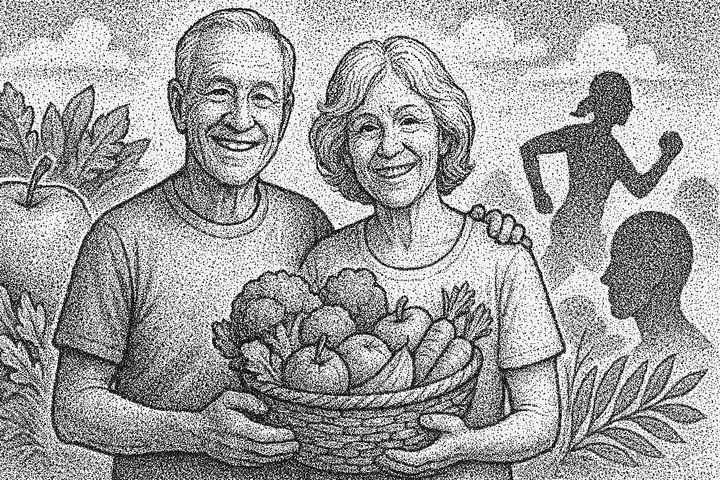Kidney Stones: The Uninvited Guests and How to Evict Them

What are Kidney Stones?
Kidney stones are hard deposits of minerals and salts that form inside the kidneys, often causing intense pain when passing through the urinary tract. They are a common health issue, with research indicating that 1 in 10 people will experience a kidney stone in their lifetime (Six Easy Ways to Prevent Kidney Stones). The prevalence is rising, particularly among men, with rates increasing in women as well. Understanding the causes and prevention strategies is crucial for managing this condition effectively.
Detailed Causes of Kidney Stones
Kidney stones form when substances in urine, such as calcium, oxalate, uric acid, and phosphorus, become highly concentrated, leading to crystal formation. These crystals can grow into larger stones, varying in size from a grain of sand to a golf ball. The following factors contribute to their formation:
- Dehydration: Insufficient water intake leads to concentrated urine, increasing the likelihood of crystal formation. The National Kidney Foundation emphasizes that dehydration is a key risk factor, especially in hot, dry climates or during heavy exercise (Kidney Stones - Symptoms and Causes).
- Dietary Factors: Diets high in oxalates (found in foods like spinach, rhubarb, beets, chocolate, and nuts), excessive salt, and animal protein can increase stone risk. For instance, high sodium intake prevents calcium reabsorption, leading to higher urine calcium levels (How to Prevent Kidney Stones: 9 Ways). High animal protein can also increase uric acid, a component of some stones.
- Medical Conditions: Certain conditions elevate risk, including hyperparathyroidism (which increases calcium levels), gout (linked to uric acid stones), and inflammatory bowel disease, which can alter urine chemistry (Kidney Stones: Causes, Symptoms, Diagnosis & Treatment).
- Genetic and Lifestyle Factors: Family history significantly increases risk, with 40% of stone formers having relatives with stones. Obesity is another factor, as it can alter metabolic processes, and men are more commonly affected, though rates in women are rising (Kidney Stones: Causes, symptoms and treatment options | American Kidney Fund).
An unexpected detail is that while calcium is a major component of stones, low-calcium diets can paradoxically increase risk by allowing more oxalate absorption, highlighting the complexity of dietary management (5 Foods that Help Prevent Kidney Stones | Brown University Health).
Comprehensive Prevention Strategies
Preventing kidney stones involves a multifaceted approach, focusing on hydration, diet, and lifestyle changes. The following strategies are supported by multiple sources:
- Hydration: Staying hydrated is the cornerstone of prevention. Aim to produce at least 2-3 liters of urine daily, which typically requires drinking 2-3 liters of water, especially in hot conditions or during exercise. The NHS recommends up to 3 liters (5.2 pints) daily, with water being the best choice, though tea, coffee, and fruit juice can count (Kidney stones - Prevention - NHS). Clear urine indicates adequate hydration, while dark yellow, especially in the morning, suggests concentration.
- Dietary Adjustments:
- Limit Sodium: Reduce salt intake to less than 2,000 milligrams daily, as high sodium increases urine calcium, promoting stone formation. Avoid fast foods, salty snacks, and processed foods (Preventing Kidney Stones | NYU Langone Health).
- Moderate Animal Protein: Limit to 6-8 ounces daily (about two decks of cards), as excessive intake can increase uric acid and reduce citrate in urine, both stone-forming factors (7 diet tips to prevent kidney stones | UT Southwestern Medical Center).
- Control Oxalate Intake: For those with calcium oxalate stones, moderate foods high in oxalate like peanuts, rhubarb, spinach, beets, chocolate, sweet potatoes, and nuts. However, these are healthy for most, so complete avoidance is not recommended unless advised (Six Easy Ways to Prevent Kidney Stones | National Kidney Foundation).
- Maintain Calcium Intake: Contrary to common belief, low-calcium diets increase stone risk. Get calcium from foods like low-fat milk, cheese, and yogurt, but avoid supplements unless prescribed, as they may increase risk if taken without food (How to Prevent Kidney Stones: 9 Ways).
- Increase Citrate: Citrate, found in citrus fruits, binds with calcium to prevent crystal formation. Add fresh lemon juice to water or consume lemons, oranges, and grapefruits. For chronic stones, consider 4 oz of lemon juice concentrate daily mixed with water to increase urine citrate (Kidney Stone Diet Plan and Prevention | National Kidney Foundation).
- Healthy Weight and Lifestyle: Maintain a healthy weight, as obesity increases risk. Regular exercise and avoiding crash diets, which can alter urine chemistry, are also beneficial (8 Natural Remedies to Fight Kidney Stones at Home).
- Specific Measures for Stone Types: For uric acid stones, cut down on high-purine foods (red meat, organ meats, shellfish) and limit sugar-sweetened drinks, alcohol, and crash diets. For struvite stones, ensure frequent urination and maintain urine flow (Symptoms & Causes of Kidney Stones - NIDDK).
Foods That Help Prevent Kidney Stones: Detailed List
Certain foods can reduce stone risk by altering urine chemistry or providing protective compounds. The following table summarizes key foods, their benefits, and supporting details:
These foods are supported by research from sources like Brown University Health, which highlights their role in prevention (5 Foods that Help Prevent Kidney Stones | Brown University Health). An interesting detail is that while oxalate-rich foods like spinach are often restricted, they are healthy for most and should only be moderated for those with specific stone types, emphasizing personalized dietary advice.
Additional Considerations and Unexpected Insights
An unexpected insight is the role of calcium: while it's a major component of stones, dietary calcium from food can actually help prevent stones by binding oxalate in the gut, reducing its absorption into urine. This contrasts with the common misconception that all calcium should be avoided, highlighting the importance of evidence-based dietary guidance (How to Prevent Kidney Stones - Harvard Health). Another detail is the rising incidence in women, which may reflect changing dietary and lifestyle patterns, adding complexity to prevention strategies.
For those with recurring stones, saving passed stones for testing can help identify the type (e.g., calcium oxalate, uric acid), allowing for tailored prevention recommendations. This is particularly important, as one size does not fit all, with 85% of stone formers potentially experiencing recurrence within 10 years (5 Foods that Help Prevent Kidney Stones | Brown University Health).
Conclusion and Recommendations
Kidney stones are preventable with proper hydration, dietary adjustments, and lifestyle changes. Drinking 2-3 liters of water daily, consuming citrate-rich citrus fruits, maintaining calcium intake from food, and limiting sodium and animal protein are key strategies. Incorporating cruciferous vegetables, whole grains, plant-based proteins, cranberries, and fish oil can further support prevention. For personalized advice, consult a healthcare professional or dietitian, especially if you have a history of stones or specific medical conditions.
This comprehensive approach ensures a holistic understanding of kidney stone prevention, addressing both common and nuanced aspects of the condition.
Key Citations
- Six Easy Ways to Prevent Kidney Stones
- Kidney Stones - Symptoms and Causes
- Kidney stones - Prevention - NHS
- 5 Foods that Help Prevent Kidney Stones | Brown University Health
- How to Prevent Kidney Stones: 9 Ways
- Kidney Stones: Causes, Symptoms, Diagnosis & Treatment
- Kidney Stones: Causes, symptoms and treatment options | American Kidney Fund
- Preventing Kidney Stones | NYU Langone Health
- 7 diet tips to prevent kidney stones | UT Southwestern Medical Center
- 8 Natural Remedies to Fight Kidney Stones at Home
- How to Prevent Kidney Stones - Harvard Health
- Kidney Stone Diet Plan and Prevention | National Kidney Foundation
- Symptoms & Causes of Kidney Stones - NIDDK




Comments ()